Geo-strategy and geo-strategic value of a nation
In the world, the discussion of geostrategy is mainly in the group of realist theories, which are concerned with the competitive nature of international relations, national comprehensive power and military strategies. Many researchers believe that geostrategy is a branch of geopolitics and originated from strategic thinkers (1) . German geographer Friedrich Ratzel - the father of the "Living Space" (Lebensraum) theory - argued that territory plays a decisive role in the development of a country (2) . British geographer, scholar and politician Halford Mackinder with the "Heartland Theory" - argued that whoever controls the Central Asian region will control the world (3) . Developing the doctrine of Halford Mackinder, American geopolitician and geostrategist Nicholas John Spykman - the father of the "Rimland Theory" - assessed that the rimland is more important than the center of the continent (4) . He was also one of the first people to use the concept of geostrategy to explain US foreign policy during the Cold War. Meanwhile, American geostrategist Alfred Thayer Mahan, with the "Seapower Theory" - argued that controlling the ocean is the key to global domination (5) . Analyzing in depth the importance of the Eurasian region in the US's global strategy, the "Regional Choice" doctrine in the "power game" of strategic theorist Zbigniew Brzezinsk - emphasized that the US must maintain its superiority in the Eurasian region to ensure its superpower status (6) .
Although the term “geo-strategy” has been mentioned since the 1930s (7) , there are still many different understandings of the concept of “geo-strategy”. The Merriam-Webster dictionary (USA) states that geo-strategy is a branch of geopolitics that deals with strategic issues, is a combination of geopolitical and strategic factors in certain geographical areas, and is a strategy used by governments based on geopolitical factors (8) . Some views hold that geo-strategy can be considered an area in which a country pays special attention and invests political, diplomatic, and military resources to achieve foreign policy goals (9) . Meanwhile, some other viewpoints assert that geo-strategy is a specific approach (can be called a specific subject), a research subject of political science specializing in studying the movement of strategic space, a tool for planning and implementing national development strategies/policies, especially in foreign affairs (10) . Geo-strategy is strategic consideration, action plan, art of controlling and exploiting space (usually of a country) to create a strategic space for the security and development of a country (11) .
Thus, there are two approaches to geostrategy. From a theoretical perspective , geostrategy is a science, originating from geopolitics, that studies the exploitation of geographical factors (geo-political, geo-economic, geo-cultural, geo-military) in the planning and implementation of strategies of countries. From a practical perspective , geostrategy is related to the values (including geographical factors) of a country or partner, an object that a country considers and uses in its strategy.
The above values (including geographical factors) can be called geo-strategic values. Similar to other types of values in international relations, a country's geo-strategic value is considered through the assessment of that country's partners. For example, senior researcher Toshi Yoshihara of the Japan Center for Strategic and Budgetary Assessments believes that China considers the geo-strategic value of Taiwan (China) in three aspects: maritime traffic connection, maritime strategic buffer zone and gateway from the sea (12) . Expert Albin Aronsson of the Atlantic Council views the geo-strategic value of Greece and Sweden for the North Atlantic Treaty Organization (NATO) from the aspect that both countries have seas and are located on the "border" of NATO (13) . Therefore, it can be understood that geo-strategic value is the importance of geographical location, from the political, military, economic, cultural perspective of a country in the strategy of that country and other countries. Geo-strategic value of regions can also be understood in a similar way.
Factors that create and change the geo-strategic value of a country
The geostrategic value of a country in the strategic calculations of other countries is mainly based on three factors: geographical location, national comprehensive strength and national foreign policy.
In terms of geographical location : Countries located in connecting positions, guarding vital traffic routes (waterways, roads), areas rich in strategic natural resources, or bordering large countries, areas with many fluctuations, are often of interest to countries, especially great powers, and are calculated in foreign policy and national strategy. Accordingly, Singapore (guarding the Strait of Malacca), Panama (owning the Panama Canal), Yemen (guarding the sea route through the Red Sea), Egypt (owning the Suez Canal)...; countries in the Gulf region (rich in oil resources), West Africa (rich in mineral resources), Central Asia (located between large countries), the Caribbean (bordering the US), Northeast Asia (bordering China),... are considered countries with great geo-strategic value.
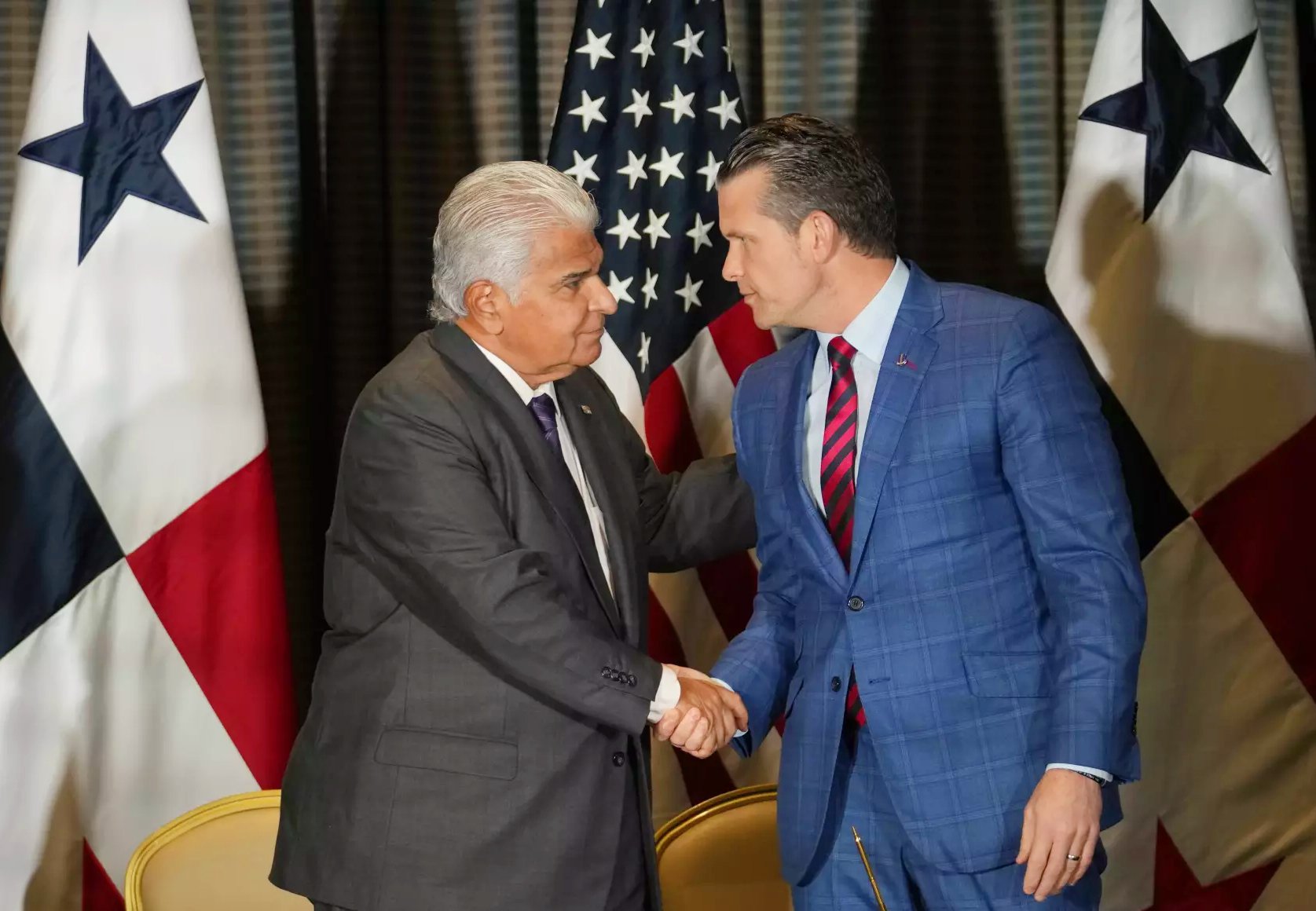
Regarding national aggregate strength (14) : Located in the same geographical area, the country with greater aggregate strength will have greater geo-strategic value. Nigeria - a West African country, Kazakhstan - a Central Asian country, Saudi Arabia and Iran - a Middle Eastern country, etc. are typical examples, as they are larger than other countries in the region in terms of area, population, economy, military and international influence.
Regarding foreign policy : Foreign policy includes two types: "pursuing" foreign policy (leaning strongly towards one side/one country) and "balancing" foreign policy (not leaning strongly towards one side/one country). Regarding geo-strategic value, "pursuing" foreign policy often has value for the partner or country that the country pursues. Meanwhile, "balancing" foreign policy has geo-strategic value for all parties involved. For example, in the Russia-Ukraine conflict, because the Baltic countries are all members of NATO, the foreign policy of the Baltic countries is not only consistent with NATO's stance, but also has great geo-strategic value for NATO as it is located on NATO's western flank and adjacent to Russia - a country that NATO considers an "opponent". However, the geo-strategic value of these countries for other countries, especially Russia, is not highly appreciated. On the contrary, Türkiye, also a member of NATO and geographically similar to the Baltic states, has important geostrategic value for both NATO and Russia, when implementing a balanced foreign policy between NATO and Russia.
Of the three factors above, national comprehensive strength, especially geographical location, can be considered a necessary condition, while foreign policy can be considered a sufficient condition for a country to have geo-strategic value to other countries. Foreign policy is also considered the most important tool to consolidate and promote geo-strategic value to serve the security and development goals of the country.
The geostrategic value of a country depends on the assessment of other countries in the process of building and implementing national strategies. When these countries change their strategic goals, methods of implementing strategic goals, especially the use of resources, etc., their assessment of the geostrategic value of that country also changes. In addition, in the context of the increasing overall strength of that country, the assessment of these countries on the geostrategic value of that country also changes. Therefore, the progress of science and technology, especially in the military field; the movement of the world and regional situation; the change of the overall national strength, are the main factors that change the geostrategic value of a country.
Regarding the progress of science and technology: It can be seen that the development history of the doctrines of “Heart of the Continent”, “Ribbed Land Belt” or “Sea Power” are all directly related to the progress of science and technology, especially in the military field. The development of high technology has created generations of precision-guided weapons, also known as “smart weapons”, which have changed the way of conducting war, giving birth to high-tech warfare. In which, the combat space has expanded to all environments on land, in the air, at sea, in space and in cyberspace. This has changed the concept of geo-strategic value in planning and implementing war strategies of one country against another.
On the other hand, advances in science and technology have also changed the value of natural resources. For example, oil is said to no longer hold the important position it once held, while rare earths, lithium, palladium, tungsten, etc., which are metals needed to manufacture high-tech products, are increasingly valuable. Accordingly, the geostrategic value of the Middle East region today is different from that of the 70s and 80s of the 20th century. Similarly, the geostrategic value of countries such as Singapore and Panama has also changed as humanity gradually reduces its dependence on maritime transport. The World Economic Forum believes that artificial intelligence (AI), blockchain and 5G technologies are changing the world's geopolitical map (15) .
Regarding the movement of the world and regional situation : The movement of the world and regional situation causes the strategic calculations of countries to change, leading to the value of other countries in the strategies of countries to change. After the Cold War, the change of the European regional situation caused the geo-strategic value of Eastern European countries in NATO's strategic calculations to change. Similarly, when the Soviet Union collapsed (in 1991), the value of Central Asian countries became increasingly important, because they were located between Russia (a country that was trying to restore its superpower status), China (a country that was "rising" strongly) and India (a country that was beginning to "transform"). When the relationship between Russia and NATO was tense, the geo-strategic value of the Baltic countries in NATO's strategy increased. On the contrary, the geostrategic value of Ukraine in US foreign policy seems to have declined, when US President Donald Trump officially returned to take over the US government since January 20, 2025 and had a 1.5-hour phone call with Russian President Vladimir Putin, discussing a solution to the Russia-Ukraine conflict (16) . World history shows that major countries and the interactions between major countries always play a dominant, even decisive role in the development trend of world politics and the shaping of the international order. For small countries, relations with major countries and handling related issues are always important.
Regarding the change of national comprehensive strength : National comprehensive strength is both a factor constituting the geo-strategic value of a country and a factor that changes that value. The most important component of national comprehensive strength is "hard power" (military and economic strength) based on political and social stability. When the process of planning and implementing foreign strategies of most countries is still affected by the election cycle or the immediate calculations of leaders, "soft power" has not really received attention because it is difficult to bring about quick and clear results. According to experts, there are two scenarios for the change of national comprehensive strength. The first scenario is that when a country's comprehensive strength increases, its geo-strategic value will also increase in the calculations of countries that want to "use" this country for their regional goals. In the second scenario , when a country's overall power declines, and it is at risk of instability or collapse, its importance is likely to increase in the strategic calculations of the countries involved, but for the country itself, its geostrategic value has collapsed.
Thus, it can be seen that the progress of science and technology and the movement of the international and regional situation are objective, while the change of national comprehensive strength is subjective. To increase geo-strategic value, countries need to build and use national comprehensive strength in accordance with the development trend of science and technology, as well as the movement trend of the world and regional situation.
Vietnam's geostrategic value in the new context
If we consider the network of partners and the number of free trade agreements (FTAs) as criteria for considering the geo-strategic value of a country, Vietnam is considered a country with high geo-strategic value compared to countries with similar national strength and development level. Major countries always attach importance to Vietnam's position and role in foreign policy and strategy, due to the following factors:
Firstly , Vietnam has an important geo-strategic position in the Asia-Pacific region: to the east is the Gulf of Tonkin and the East Sea; to the west is Laos and Cambodia; to the north is China; to the south is both the East Sea and part of the Gulf of Thailand. Therefore, Vietnam is both a bridge between Northeast Asia and Southeast Asia, located on an important traffic axis of the busiest maritime and commercial routes in Asia, and "guards" the strategic maritime economic and commercial route between the Gulf of Thailand and the East Sea; at the same time, Vietnam is the "gateway" to Asia from the Pacific Ocean.
Second , the national comprehensive strength, including material and spiritual strength, the strength of tradition and modernity, the strength of economy, politics, culture, society, national defense, security, and foreign affairs originating from the strength of the Vietnamese people, is constantly enhanced, the position and power of the country are raised to a new level. The socialist regime is maintained and strengthened, increasingly promoting its superiority; the strength of great national unity is consolidated; the leadership and ruling role of the Party is maintained and promoted. The macro economy is stable, the growth rate is quite high, among the highest growth countries in the region and the world. National defense and security potential is consolidated and enhanced...
Third , as a peace-loving country that values righteousness, love, and reason in international cooperation, Vietnam always adheres to a foreign policy of independence, self-reliance, peace, friendship, cooperation, development, diversification, and multilateralization; is a good friend and reliable partner with countries around the world; and is a responsible member of the international community. In a world full of fluctuations, strategic competition, and many choices, Vietnam adheres to the "four no's" defense policy (17) ; does not "choose sides" but chooses righteousness, fairness, justice, and reason based on the fundamental principles of the United Nations Charter and international law; equality, mutual benefit, and mutual victory.
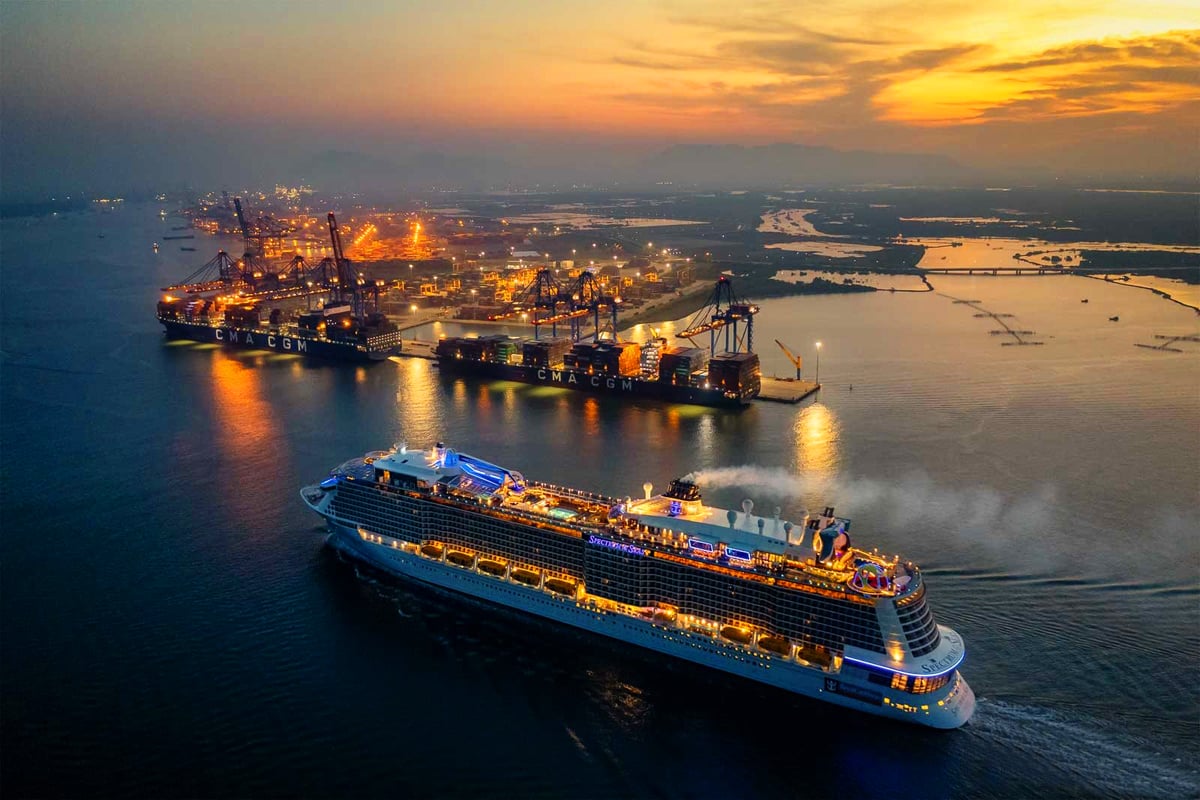
Based on the analysis of factors that change the geo-strategic value of a country, it can be seen that from now until 2030 and 2045, the development of the international and regional situation can have a multi-dimensional impact on Vietnam's geo-strategic value in a number of aspects.
Firstly , with the rapid development of science and technology, cyberspace (cyber warfare), space (space warfare), etc., are playing an increasingly important role in the strategic calculations of countries, especially large countries. However, the importance of sea and land space has not diminished. Sea routes, submarine optical cables, access routes to targets deep in the mainland, etc. are still given great attention by large countries in their national strategic calculations. For Vietnam, high-speed train technology, supersonic aviation, wind power, green hydrogen, anti-access weapons technology, etc. can increase the value of connectivity and "gateway" of Vietnam.
Second , most forecasts about the world and regional situation in the coming time believe that competition will be a prominent feature in relations between major countries; the trend of division and fragmentation between the US and the West on one side and China and Russia on the other will become increasingly clear. This will contribute to enhancing the geo-strategic value of countries in the Southeast Asian region, including Vietnam. In addition, the increasing trend of sub-multilateral linkages, the trend of shifting supply chains in the region to avoid the negative impact of geopolitical tensions and seek more profitable and sustainable investment opportunities, etc. will also contribute to enhancing the geo-strategic value of Vietnam in the next 5-10 years.
Third , the sustainability and resilience of cooperation mechanisms of which Vietnam is a member continue to be a plus for Vietnam's geo-strategic value. Despite facing many challenges, the Association of Southeast Asian Nations (ASEAN) is forecast to continue to attract the attention of countries, especially major countries. The Comprehensive and Progressive Agreement for Trans-Pacific Partnership (CPTPP), of which Vietnam is one of the leading countries promoting, is receiving the attention of many countries both inside and outside the region. These are typical examples of the development trend from cooperation mechanisms that can bring positive impacts on Vietnam's geo-strategic value.
In general, the change in the world and regional situation is the factor that has the strongest impact on Vietnam's geo-strategic value from now until 2030 and 2045. However, the impact of these factors needs to be considered in interaction with the domestic context. Vietnam is entering a new era - the era of national development, with the goal of double-digit growth, becoming a high-income developed country by 2045.
To realize the aspiration of national development and contribute to increasing the national geo-strategic value in the new era of development, in general, Vietnam needs:
First , continue to enhance the national comprehensive strength. In addition to "hard power", special attention should be paid to arousing and promoting "soft power", creating a national comprehensive strength to complete the goals set out in the Resolution of the 13th National Party Congress. Focus on areas and geographical areas related to increased connectivity, such as maritime economy, seaports, roads, and railways connecting the sea with China, Laos, Cambodia, etc. to strive to become a regional logistics center, an important link in the regional and global production and supply chain. Enhance national potential in cyberspace and outer space, especially geographically related elements, such as fiber optic cable systems, data center systems, etc.
Second , enhance self-reliance, effectively implement the foreign policy of independence, self-reliance, multilateralization, diversification, proactiveness and active international integration. Independence and self-reliance are important factors that create geo-strategic value. Independence and self-reliance are the basis, conditions and premises for proactive and active international integration. On the contrary, international integration contributes to strengthening the ability to maintain independence and self-reliance of the nation. While promoting deep international integration into the region and the world, in order to maintain and enhance the ability to maintain independence and self-reliance, it is necessary to promote diversification and multilateralization of foreign relations with many partners to promote and mobilize resources and support from countries around the world in the cause of building and defending the socialist Fatherland of Vietnam.
Third , build and implement development strategies and foreign affairs strategies in line with the trends and major trends of the times. This is one of the ways to combine the strength of the nation with the strength of the times in the new context. Many domestic and foreign studies show that from now until 2030 and 2045, major trends and major trends, including peace, cooperation and development, globalization, democratization, green transformation, and digital transformation, will continue to be prominent trends and trends with the participation of the majority of countries. Effectively exploiting trends and trends will contribute to enhancing the overall national strength as well as the role and position of Vietnam in the region and the world.
Fourth , be more proactive and active in the common work of the regional and international community, ready to contribute resources, including human and financial resources, to efforts to respond to common challenges, for peace, security and sustainable development in the world. This is also one of the ways to directly implement Vietnam's message of "reliable partner, active and responsible member". In handling foreign affairs, in addition to strictly complying, it is necessary to be ready to protect the basic principles of international law and the values recognized by the majority of countries in the international community.
Fifth , in dealing with major countries, it is necessary to apply the method of both cooperation and struggle flexibly, with appropriate policies for each major country, so that relations with one country do not affect relations with another. Regularly grasp the situation related to national independence, autonomy and sovereignty, especially the actions of major countries, to have appropriate policies in the process of cooperation. Strengthen international cooperation on defense and security with major countries. Clearly perceive Vietnam's position and strength in the contemporary world, position Vietnam in international relations, especially in the cooperative - competitive relationship between major countries, in the movement of geopolitics and international and regional order, thereby recognizing the capabilities and limits of possible actions. In particular, we must not let the country be caught up in the vortex of the "game" of power competition between major countries, persevere in the "four no's" defense policy, and maintain a balance of influence and interests of major countries in relations with Vietnam.
Sixth , build and implement a development strategy as well as effectively utilize the country's geo-strategic value in the new context. Accordingly, it is necessary to carefully study and evaluate the country's geo-strategic value in relation to each major country, especially China and the US, and plan and implement policies to maximize those values for the goal of protecting the Fatherland and developing the country in the new era; at the same time, actively contribute to peace, stability and development in the region.
The geography - strategy of Vietnam is one of the important factors in the process of planning and implementing regional strategies of other countries, especially large countries. From now to 2030, vision to 2045, in the movement and continuous change of the region and the world, the advantages, opportunities and difficulties and challenges for the geography - strategic value of Vietnam always appear together, interwoven. The clear recognition of advantages, opportunities and difficulties, challenges plays an important role and meaning, is the basis for building the right strategies at the macro level and proposing specific, systematic and feasible solutions to overcome difficulties, challenges, take advantage of the opportunity to raise the national value - national strategy for the development of the country quickly, sustainably and confidently.
-----------------------------
(1) Strategececs Team: "Geostrategy in 21st Century" (roughly translated: Geography-Strategy in the 21st century ", Strategiecs Think Tank , June 23-2021, https://streatect.com/en/analyses/geostrategy-in-21st-century
(2) See: Friedrich Ratzel: Politische Geographie (Political Geography) (roughly translated: political geography), R. Oldenbourg, 1897
(3) See: Halford Mackinder: The Geographical Pivot of History , Royal Geographical Society, 1904
(4) See: Nicholas Spykman: America's Strategy In World Politics: The United States and the Balance of Power (Miss strategy in the world political system: USA and Harcourt, Brace and Company, 1942
(5) See: Alfred Thayer Mahan: The Influence of Sea Power Upon History, 1660 - 1783 (roughly translated: Effect of sea strength on history, 1660 - 1783), Little, Brown and Company, 1890
(6) See: Zbigniew Brzezinski: The Grand Chessboard: American Primacy and ITS Geostrategic Imperatives (roughly translated: Big Chess Ban - Brief Overline of the United States and Geography - Strategic Orders), Basic Books, 1997
.
(8) Merriam - Webster: "Definition of Geostrategy" (roughly translated: Definition of Geography - Strategy), https://www.merriam-webster.com/dictionary/Geostrategy
.
(10) Tran Khanh: Vietnam strategic geography vision 2030: Theoretical issues, practical and policy adaptation , Publishing House. National politics truth, Hanoi, 2024, p. 87 - 88
(11) Trần Khánh: “Bàn về các thành tố cấu thành địa - chiến lược quốc gia”, Tạp chí Cộng sản điện tử , ngày 12-5-2023, https://www.tapchicongsan.org.vn/web/guest/tin-binh-luan/-/asset_publisher/DLIYi5AJyFzY/content/ban-ve-cac-thanh-to-cau-thanh-dia-chien-luoc-quoc-gia
(12) Toshi Yoshihara: "Chinese views of taiwan's geostrategic value" (roughly translated: China's views on geography-strategy of Taiwan (China)), The Sasakawa Peace Foundation , April 12, 2023, https://www.sp.org/spf-chinina-oBerver/document-detail045.htmlML
(13) Albin Aronsson: "The Geostrategic Value of Greece and Sweden in the Current Struggle Between Russia and NATO" (roughly translated: Greek and Swedish strategy in the competition between Russia and NATO today), Atlantic Council , December 19, 2015, https://www.atlanticcouCil.org/blogs/natosource/the-Geostrategic-value-OF-GREECE-AND-SWEDEEN-IN-THE-Current-struggle-between-russia-and-nato/
(14) National synthesis power includes economic, military, cultural, international power ... in a broad sense, national synthesis power includes geographical value.
. https://www.wefforum.org/stories/2021/04/seven-business-leaders-on-how-technology-will-shape-geopolitics/
(16) See: Patrick Revell: "What the Trump-Putin Call Means for Ukraine: Analysis" (Analysis of calls between US President Donald Trump and Russian President Vladimir Putin mean to Ukraine), ABC News , February 14, 2025, https://abcnews.go.com/international/trump-putin-call-means-ukraine-analysis/story?id=118788646
(17) 1- Do not let foreign countries set military bases or use territories to combat other countries; 2. Do not participate in military alliance; 3- Not linked to one country to resist the other; 4- Do not use force or threaten to use force in international relations
Source: https://tapchicongsan.org.vn/web/guest/the-gioi-van-de-su-kien/-/2018/1079702/dia---chien-luoc-va-gia-tri-dia---lien-luoc-cua-viet-nam-trong-boi-canh-moi.aspx


![[Photo] National conference to disseminate and implement Resolution No. 66-NQ/TW and Resolution No. 68-NQ/TW of the Politburo](https://vphoto.vietnam.vn/thumb/1200x675/vietnam/resource/IMAGE/2025/5/18/adf666b9303a4213998b395b05234b6a)



![[Photo] General Secretary To Lam visits exhibition of achievements in private economic development](https://vphoto.vietnam.vn/thumb/1200x675/vietnam/resource/IMAGE/2025/5/18/1809dc545f214a86911fe2d2d0fde2e8)




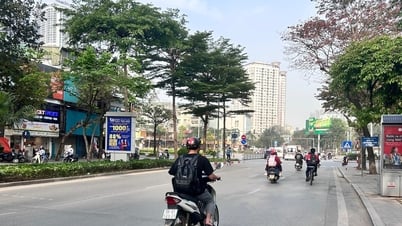

























































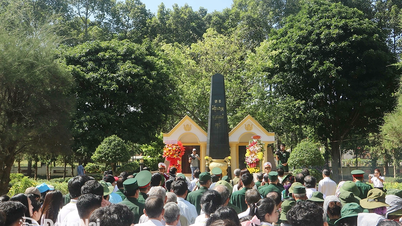
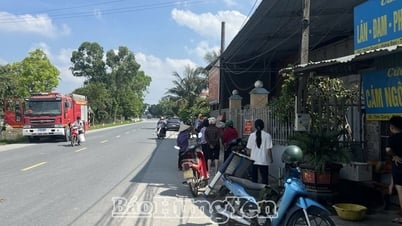














Comment (0)